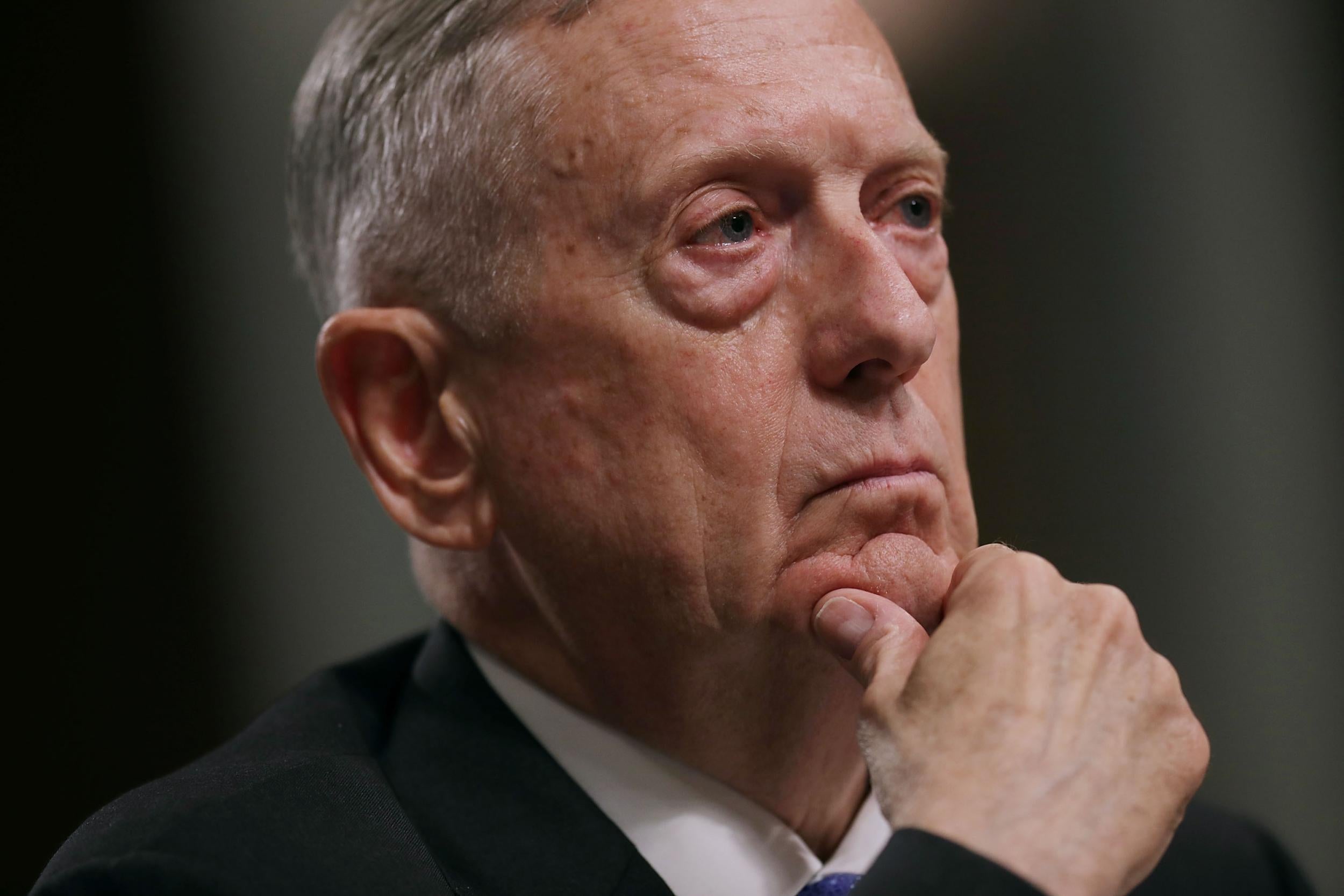Syria's chemical weapons programme goes 'far beyond one airfield', warns US Defence Secretary James Mattis

Your support helps us to tell the story
From reproductive rights to climate change to Big Tech, The Independent is on the ground when the story is developing. Whether it's investigating the financials of Elon Musk's pro-Trump PAC or producing our latest documentary, 'The A Word', which shines a light on the American women fighting for reproductive rights, we know how important it is to parse out the facts from the messaging.
At such a critical moment in US history, we need reporters on the ground. Your donation allows us to keep sending journalists to speak to both sides of the story.
The Independent is trusted by Americans across the entire political spectrum. And unlike many other quality news outlets, we choose not to lock Americans out of our reporting and analysis with paywalls. We believe quality journalism should be available to everyone, paid for by those who can afford it.
Your support makes all the difference.US Defence Secretary James Mattis has said that Syria's chemical weapons programme goes "far beyond one airfield".
The comment appears to be a reference to the Syrian airfield which the United States struck in April, alleging the President Bashar al-Assad had used it to launch a chemical weapons attack on his own people.
Mr Mattis said he believes the Syrian regime has now stockpiled chemical weapons in other parts of the country, in violation of international agreements.
The comment comes days after the White House issued a warning to the Syrian regime that Mr Assad would "pay a heavy price" for any further attacks. Mr Mattis said he beliefs the warning had its intended effect.
"It appears that they took the warning seriously," Mr Mattis told reporters. "They didn't do it."
Syria was said to have destroyed all of their chemical weapons under an agreement reached by the US, Russia, and the Assad regime in 2013. But in April, more than 80 people were killed in a suspected chemical weapons attack in north-western Syria.
The White House said on Monday that it had identified potential preparations for another chemical weapons attack by Mr Assad's regime.
"As we have previously stated, the United States is in Syria to eliminate the Islamic State of Iraq and Syria," the White House said in a statement. "If, however, Mr. Assad conducts another mass murder attack using chemical weapons, he and his military will pay a heavy price."
A Pentagon spokesperson later confirmed the alleged preparations were being made at the same airfield the US struck in April. That strike marked the first direct military action taken by the US against Mr Assad's regime since the beginning of the country's six-year civil war. Six people were reportedly killed.
Secretary of State Rex Tillerson said the strike did not signal a policy change toward Syria, but proved Mr Trump is "willing to act when governments and actors cross the line ... and cross the line in the most heinous of ways".
Mr Assad has claimed innocence in the chemical weapons attack, and called the airstrike a "disgraceful act" that "can only be described as short-sighted."
US forces have since shot down several of the Syrian regime’s drones, which they claim fired on – or came close to firing on – a US training camp in the country. The US has also launched two direct attacks on Syrian forces entering a deconfliction zone they established around the camp.
The US maintains that their presence in the country is part of a fight against Isis, not to undermine the Syrian regime.
"The Coalition does not seek to fight Syrian regime, Russian, or pro-regime forces partnered with them, but will not hesitate to defend Coalition or partner forces from any threat," Centcom said earlier this month.
Join our commenting forum
Join thought-provoking conversations, follow other Independent readers and see their replies
Comments